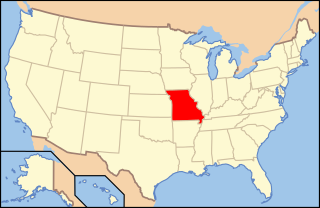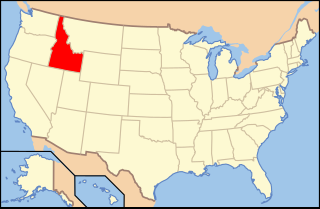Related Research Articles
The legal status of transgender people varies greatly around the world. Some countries have enacted laws protecting the rights of transgender individuals, but others have criminalized their gender identity or expression. In many cases, transgender individuals face discrimination in employment, housing, healthcare, and other areas of life.
Re Kevin – Validity of Marriage of Transsexual, also known simply as Re Kevin, was a 2001 Australian court case brought before the Full Court of the Family Court of Australia regarding the possibility of transsexual people to marry according to their new gender. The court granted the applicant this right.
Corbett v Corbett (otherwise Ashley) is a 1970 family law divorce case heard between November and December 1969 by the High Court of England and Wales in which Arthur Corbett sought annulment of his marriage to April Ashley. Corbett (the husband) had known at the time of the wedding that Ashley (the wife) had been registered male at birth and had undertaken sex-reassignment surgery. However, after the relationship had broken down, Corbett sought to end the marriage, his legal ground for doing so being that the marriage had been invalid, as Ashley was of the male sex.

Lesbian, gay, bisexual and transgender (LGBT) rights in India have been evolving rapidly in recent years. However, Indian LGBT citizens continue to face social and legal difficulties not experienced by non-LGBT persons.

A transgender person is someone whose gender identity or gender expression does not conform to that typically associated with the sex they were assigned at birth. Many experience gender dysphoria, which they may seek to alleviate through transitioning, often adopting a different name and set of pronouns in the process. They may pursue gender affirming care such as hormone replacement therapy and various gender-affirming surgeries. Not all transgender people desire these treatments and others may be unable to access them for financial or medical reasons. Those who do desire to medically transition to another sex may identify as transsexual.

Transsexual people experience a gender identity that is inconsistent with their assigned sex, and desire to permanently transition to the sex or gender with which they identify, usually seeking medical assistance to help them align their body with their identified sex or gender.

Lydia Annice Foy is an Irish trans woman notable for leading legal challenges regarding gender recognition in Ireland. In 1992, Foy had sex reassignment surgery, and began a 20-year battle to have her birth certificate reflect her gender identity. In 2007, the Irish High Court ruled that the relevant portions of the law of the Republic of Ireland were incompatible with the European Convention on Human Rights, but by February 2013 the law had not been changed and she began new legal proceedings to enforce the 2007 decision. As of 15 July 2015, Ireland has passed the Gender Recognition Bill 2014.
Littleton v. Prange, 9 S.W.3d 223 (1999), is a 1999 lawsuit that voided a marriage where one of the individuals was a transgender woman, Christie Lee Littleton. The Fourth Court of Appeals of Texas ruled that, for purposes of Texas law, Littleton was considered male, and that her marriage to a man was therefore invalid. Texas law did not recognize same-sex marriage at the time of the ruling.
In the United States, the rights of transgender people vary considerably by jurisdiction. There is a coordinated national campaign by conservative/right-wing politicians and organizations to target transgender rights.

Lesbian, gay, bisexual, transgender, and queer (LGBTQ) persons in the U.S. state of Missouri face some legal challenges not experienced by other residents throughout the state, excluding St. Louis, Kansas City, and Columbia. Same-sex sexual activity is legal in Missouri.

Lesbian, gay, bisexual, and transgender (LGBT) persons in the U.S. state of Indiana enjoy most of the same rights as other people. Same-sex marriage has been legal in Indiana since October 6, 2014, when the U.S. Supreme Court refused to consider an appeal in the case of Baskin v. Bogan.

Lesbian, gay, bisexual and transgender (LGBT) people in the U.S state of Idaho face some legal challenges not experienced by non-LGBT people. Same-sex sexual activity is legal in Idaho, and same-sex marriage has been legal in the state since October 2014. State statutes do not address discrimination based on sexual orientation and gender identity; however, the U.S. Supreme Court's ruling in Bostock v. Clayton County established that employment discrimination against LGBT people is illegal under federal law. A number of cities and counties provide further protections, namely in housing and public accommodations. A 2019 Public Religion Research Institute opinion poll showed that 71% of Idahoans supported anti-discrimination legislation protecting LGBT people, and a 2016 survey by the same pollster found majority support for same-sex marriage.

Lesbian, gay, bisexual, and transgender (LGBT) people in Kansas may face some legal challenges not experienced by non-LGBT residents. Same-sex sexual activity is legal in Kansas, and the state has prohibited discrimination on the basis of sexual orientation and gender identity in employment, housing and public accommodations since 2020.
The state of Texas, located in the south in the United States, contains a large community of LGBTQ+ citizens. More specifically, the city Austin, Texas has the third largest population of LGBTQ+ people based on the size of the city. Austin, Texas, and Texas in general, is home to several icons of the LGBTQ+ community such as Karamo Brown, co-founder of the LGBTQ+ group "Queer Eye" and Demi Lovato, a queer artist and activist. There is history of heavy violence against the LGBTQ+ community within Texas such as riots, as well as liberation and parades celebrating those within the community.
This is a timeline of notable events in the history of lesbian, gay, bisexual and transgender people in South Africa.

This article addresses the history of gay men in the United States. Unless otherwise noted, the members of same-sex male couples discussed here are not known to be gay, but they are mentioned as part of discussing the practice of male homosexuality—that is, same-sex male sexual and romantic behavior.
The United States policy regarding same-sex immigration denied couples in same-sex relationships the same rights and privileges afforded different-sex couples based on several court decisions and the Defense of Marriage Act (DOMA) until the U.S. Supreme Court ruled Section 3 of DOMA unconstitutional in United States v. Windsor on June 26, 2013.
This article addresses the legal and regulatory history of transgender and transsexual people in the United States including case law and governmental regulatory action affecting their legal status and privileges, at the federal, state, municipal, and local level, and including military justice as well.

This is a timeline of notable events in the history of the lesbian, gay, bisexual, and transgender community in the United States.
Marshall Gephart Gardiner was a news journalist at the Leavenworth Times and member of the Kansas House of Representatives from 1957 to 1960.
References
- ↑ "85030 -- In re Estate of Gardiner". Kansas Supreme Court. March 15, 2002. Archived from the original on 23 September 2013. Retrieved 13 November 2012.
- ↑ Strasser, Mark (2003). "Harvesting the Fruits of Gardiner: On Marriage, Public Policy, and Fundamental Interests". George Washington Law Review. 71: 179. SSRN 439524.
- ↑ Oliphant, Robert E.; Steegh, Nancy Ver (2007-03-07). Examples & Explanations: Family Law, 2nd Ed. Aspen Publishers Online. pp. 45–. ISBN 9780735562899 . Retrieved 13 November 2012.
- ↑ Link, David (March 22, 2002). "Same-sex marriage, with a twist". Salon . Retrieved 13 November 2012.
- ↑ Spurgeon, Devon (July 7, 2000). "Double Bind: Why a Woman in Missouri Is a Man in Kansas, and Why It Matters". The Wall Street Journal . Retrieved 13 November 2012.
- ↑ "J'Noel Gardiner (1958 - ) finance professor". A Gender Variance Who's Who. 2011-06-03. Retrieved 2019-06-04.
- ↑ Wilgoren, Jodi (2002-01-13). "Suit Over Estate Claims a Widow Is Not a Woman". The New York Times. ISSN 0362-4331 . Retrieved 2019-06-04.
- ↑ Lamoy, Annie; Stacy Downs (March 15, 2002). "Kansas Supreme Court rules against transsexual (subscription required)". Knight Ridder / Tribune News Service. Archived from the original on March 29, 2015. Retrieved 13 November 2012.
- ↑ Norgren, Jill (2006-07-30). Serena Nanda (ed.). American Cultural Pluralism And Law. Greenwood Publishing Group. pp. 200–. ISBN 9780275986995 . Retrieved 13 November 2012.
- ↑ Myers, Gordon Brown, Scott; Myers, Scott (2008-06-16). Administration of Wills, Trusts, and Estate. Cengage Learning. pp. 85–. ISBN 9781428321762 . Retrieved 13 November 2012.
- ↑ Gardiner v. Gardiner, 537 U.S. 825 (2002).
- ↑ Currah, Paisley; Juang, Richard M.; Minter, Shannon Price (2006). Transgender Rights. U of Minnesota Press. pp. 37–. ISBN 9780816643127 . Retrieved 13 November 2012.
- ↑ Gebhardt, Shawn (2009). "Full Faith and Credit for Status Records: A Reconsideration of Gardiner". California Law Review. 97: 1419–.
- ↑ "GPAC Applauds MD Ruling Upholding Sex Change, Stage Set for Conflict with Recent TX, KS Decisions". Gender Public Advocacy Coalition (GPAC) press release. 18 February 2003.